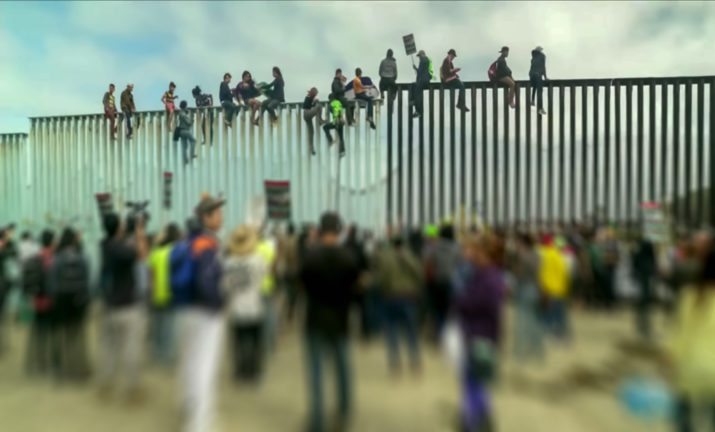
This interview is part of the SECUREU network activities
Earlier this year, on July 3-9, 2022, the University of Amsterdam and The Netherlands Institute for Advanced Study in the Humanities and Social Sciences (NIAS-KNAW) hosted a summer school entitled The Securitization of “Undocumented Migrants” and Empowerment Activities of Civil Organizations. This summer school was organized as part of the Jean Monnet project SECUREU (The Securitization of Migrants and Ethnic Minorities and the Rise of Xenophobia in the EU). It explored the role of allies and supporters, such as civil society organizations, acting on behalf of undocumented migrants. Participants had a chance to learn more about the evolution of local and national migration policies in the Netherlands and the program culminated in field research visits to Utrecht, Rotterdam, and Amsterdam. The summer school welcomed students from diverse research backgrounds and in this interview series, we would like to further introduce their perspectives and work. In this interview, we introduce Leslie Molina, PhD student at the University of Glasgow.
– Rusudan Zabakhidze for SECUREU
SECUREU Leslie, first of all thank you for your contributions to the summer school and for taking time to share more about your own research. I would like to start by asking you to tell us a few words about yourself and your background.
Leslie Molina Thank you for inviting me. My name is Leslie Molina and I am currently a 2nd year PhD student at the University of Glasgow. I am the daughter of Central American immigrants and a proud Latina. I was born in the US, but my parents are originally from El Salvador and Guatemala. They migrated as undocumented migrants to the US and made their way to New York, separately. Aside from being a full-time PhD student, I work remotely for a non-profit organization called Neighbors Link that provides pro bono legal representation to immigrants in the community.
SECUREU Can you tell us more about your current work and research focus?
Leslie Molina My current work focuses on a transatlantic analysis of the UK’s and US’s migration policies and enforcement actions. More specifically, my research is a comparative analysis of meso-level, between politics and everyday life, in which migration policies get articulated on the grounds of state-promoted and state-regulated notions of rights and law. Legal practitioners working within the confines of the laws and politics of migration challenge and negotiate such notions and practices. My research provides a meso-level analytical exploration on litigation strategies, their underpinning ideologies and aims vis-à-vis state regulations and policies, which I see as emanations of the racial state, ruled by a nationalist leadership. By uncovering such ideologies and strategies of support, the research will provide a particularized account of how the racial state is mediated and how state-legal and policy racism is challenged in practice.
SECUREU Can you share with our readers what inspired you to pursue PhD studies and subsequently your research?
Leslie Molina I would say that my research interests and my inspiration for pursuing a PhD are very personal. My parents entered the US as undocumented migrants searching for a better future. I, by chance, was born in the US and privileged with citizenship and the rights that my parents did not have. As a child, I saw how my parents navigated paperwork and law offices in order to find a way to legalize their status. My mom was fortunate in that she was able to adjust her status, years later, and receive her green card. Today she is proud to say that she is a US citizen. My father, however, was not as lucky. He was arrested and detained by Immigration and Customs Enforcement in 2009. After seven long years of court appearances and appeals, he was arrested once more, detained, and deported back to El Salvador. Issues surrounding migration have always impacted me. It’s also impacted other family members, friends, and the clients I represent through my work at Neighbors Link. My inspiration for pursuing this PhD and this research is rooted in a desire to assist the immigrant community and those that have faced or are facing the same events and experiences my family has endured. I want people who are disconnected from this topic to get an inside look as to how immigration legal practices are structured and how they affect the individual, undocumented migrants, the immigration legal practitioners, and others that surround them.
SECUREU This is a very touching, inspiring story. You have an impressive practical experience working with nonprofit organizations, providing undocumented migrants crucial legal representation. While you are still at the beginning of your academic journey, how do you see the exchange between academia, policy-makers, activists and migrants themselves? How do you think your research will benefit them?
Leslie Molina I noticed, while working at Neighbors Link, that there is a specific need for research for most of the cases we represent. Legal practitioners use country conditions reports to claim and prove that the client’s country of origin is unsafe for them to return for specific reasons. They use academic articles that detail the impacts that immigration policies and enforcement actions have on an individual´s mental and physical health; how certain policies and structures have created a specific need in the immigrant community that is not being met; research that details the legal rights that undocumented migrants have, relating to employment or interactions with the police. I believe that all these exchanges between migrants, activists, legal practitioners, and policy makers are beneficial to the overall community. And I think people sometimes take that for granted. I hope that my research and the outcome of it benefit all these interconnected branches, may it be through an individual’s personal narrative or some insight as to how immigration legal practitioners and activists work and are able to provide necessary services to migrants.
SECUREU During the SECUREU summer school you had an opportunity to learn more about local and national policy practices in the Netherlands. In your own research, you focus on the United States and the United Kingdom. Have you drawn any parallels between your research case studies and Dutch immigration policies?
Leslie Molina I think the most common parallels I have seen is the constant need for pro bono immigration legal representation or at least a trusted source where people can find legal representation and the need for support services and trusted spaces. When my team did the field research with two of the CSOs in Amsterdam, that’s what we noticed the most.
SECUREU During the SECUREU summer school, we covered a wide range of topics. In our discussions you have made valuable contributions by emphasizing law and legal representation. What would you identify as the most interesting or relevant aspects of the program in your experience? How do you plan on applying received knowledge in your own work?
Leslie Molina I would say that the most relevant would be the different theories and methodologies used to discuss securitization. This year’s cohort came from different academic and cultural backgrounds, which provided different perspectives and interpretations when discussing both the securitization and undocumented migrants in Amsterdam. I think having all those discussions, may it be regarding the policies and services provided in different countries or the work that each of the students do or have done is beneficial to me in understanding multiple realms of the topic at hand. Regardless of whether individuals agree or disagree on a topic area, I think those discussions are extremely important and must be had.
SECUREU Thank you, Leslie, for sharing your personal and professional paths that seem to be very intertwined. On behalf of the SECUREU network, I wish you best of luck with your work.
Leslie S. Molina is a PhD Student in Sociology at the University of Glasgow. Her current work focuses on immigration legal practitioners in Glasgow and New York and how they mediate between immigration policies and enforcement practices issued by the racial state and providing pro bono legal representation to their clients. Prior to the PhD, Leslie obtained a Masters in Migration, Superdiversity and Policy at the University of Birmingham. She has worked as a Department of Justice Accredited Representative and Paralegal in the area of immigration law for the last four years at Neighbors Link, a non-profit organization whose mission is to strengthen the whole community through the healthy integration of immigrants.
Rusudan Zabakhidze is a dissemination and outreach officer for the Jean Monnet network “Securitisation of Migrants and Ethnic Minorities and the Rise of Xenophobia in the EU” (SECUREU). She is also coordinating the Annual International Conference of Europeanists at the Council for European Studies.
Published on November 29, 2022.




